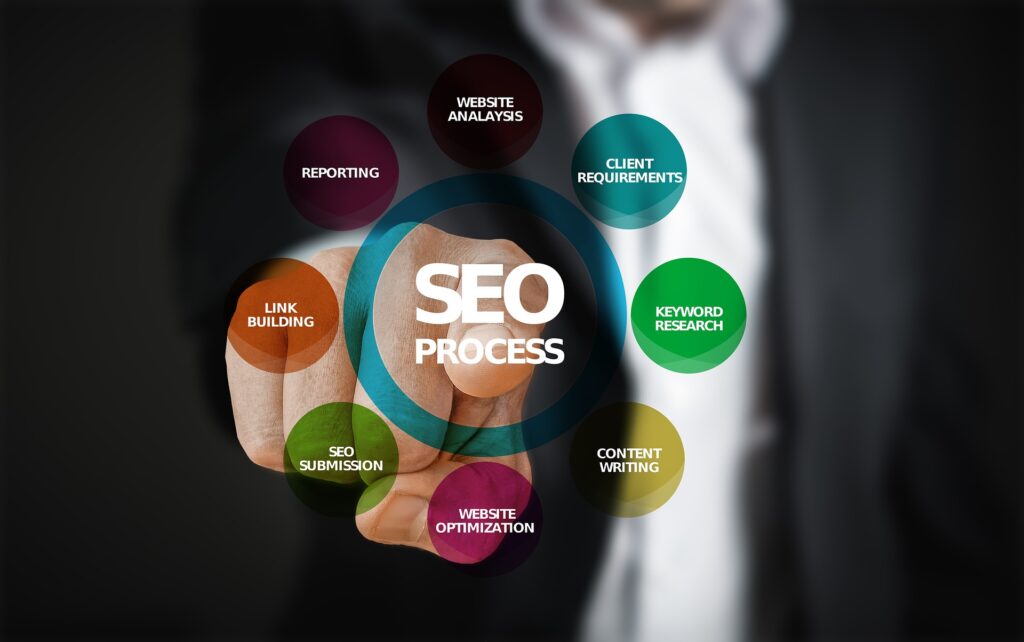What is Search Engine Optimization and how important it is.
Search Engine Optimization improves website visibility and traffic by making it search engine friendly, enhancing credibility, user experience, and conversion rates, and being a cost-effective marketing tool.
October 6, 2023
Search Engine Optimization (SEO) is the practice of increasing the quantity and quality of traffic to your website through organic search engine results. It involves making certain changes to your website design and content that make your site more attractive to a search engine. It is the means through which websites improve their search rankings on engines like Google, Bing, etc. The higher your website ranks in search results, the more likely you are to garner attention and attract prospective and existing customers to your business.
Search Engine Optimization (SEO) is critically important for several reasons:
1. Visibility and Ranking: With SEO, your website can achieve higher visibility on Search Engine Result Pages (SERPs). This increases the chance of attracting potential customers to your website.

2. Traffic: Higher visibility and ranking directly result in increased traffic to your website, as people usually visit websites that appear on the first page of search engine results.
3. Credibility: A top position on search results signals to searchers that your website is a reputable source of information or services.
4. User Experience: SEO involves making your site user-friendly. This means fast load times, easy navigation, and mobile-friendly website configuration, which can lead to better user engagement, more shares, and increased sales.
5. Cost-Effective Marketing: SEO is also a cost-effective strategy, compared to paid advertising, as it targets users who are actively looking for your products or services online.
6. Competitive Advantage: If your competitors are already using SEO and you’re not, you could be losing out on capturing a significant number of potential customers.
7. Higher Conversion Rate: Users who come to your site from search engines are likely to be interested in your product or service, which can lead to higher conversion rates.
There are several specific methods used for Search Engine Optimization. They are categorized as On-Page and Off-Page optimization techniques:
On-Page SEO Techniques include:
1. Keyword Optimization: Using relevant keywords in your content, URLs, title tags, meta descriptions, and headers.
2. Content Quality: Creating high-quality, unique, and informative content that satisfies user’s queries.
3. Meta Tags: Writing appropriate meta title and meta descriptions to help search engines understand the content of your pages.
4. URL Structure: Making URLs concise and adding crucial keywords in it.
5. Internal linking: Linking your webpages to each other helps search engines understand the structure of your website and helps spread link equity around your site.
Off-Page SEO Techniques include:
1. Link Building: Acquiring high quality and relevant links from other websites to increase the credibility of your website.
2. Social Media Marketing: Promoting your website content on social media platforms to generate more traffic.
3. Guest Blogging: Writing and publishing content on other relevant blogs or websites to create high-quality backlinks.
4. Influencer Outreach: Reaching out to influencers in your industry for link building or content promotion.
5. Brand Building: Participating in community forums, Answering on Q&A portals, engaging with audience etc. to create a strong brand image.
It’s important to remember that SEO is a long-term process and requires regular work to keep your site’s ranking high. Patience and consistency are key to a successful SEO strategy.
#SEO #SearchEngineOptimization #WebsiteTraffic #OnPageSEO #OffPageSEO #KeywordOptimization #LinkBuilding #WebsiteRanking #Visibility #UserExperience #MetaTags #ContentQuality #URLStructure #InternalLinking #DigitalMarketing
